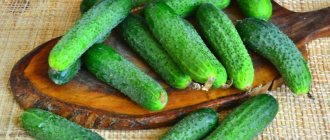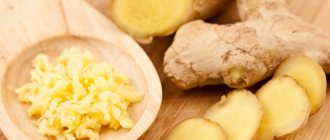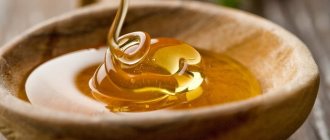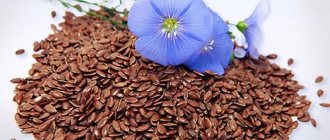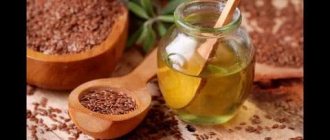Mechanism of action and effectiveness of using water for constipation
When liquid enters the body, it does not stay in the stomach for a long time and quickly moves directly into the intestines. Its processing does not require exposure to digestive enzymes or gastric juice.
The water that enters the body immediately begins to act. It promotes natural cleansing of the intestinal walls, improves peristalsis and has an overall beneficial effect.
Water during constipation contributes to the following processes:
- Liquefaction of feces. Soft or liquid stool moves through the intestines faster.
- Cleansing the mucous membrane of the large and small intestines from food debris.
- Reducing the intensity of flatulence, bloating and cramping.
- Strengthening the processes of digestion, passage of food and activation of intestinal function.
During constipation, water cleanses the intestines of food debris.
Thus, restoring the water balance normalizes stool formation, eases spasms and eliminates constipation.
Salty water
The method of combating constipation using salt water came from India and is known among yogis as Shank Prakshalana. The procedure completely cleanses and “resets” the intestines.
Carrying it out requires time, some skill and a constantly free toilet. Therefore, to treat constipation with salt water, it is in your best interest to choose a day when household members will be absent.
What's the point
To cleanse, you will need 3 liters of water and salt at the rate of a tablespoon per liter of water. The water will need to be heated to 37 degrees and combined with salt.
After mixing, the resulting solution is similar in temperature and concentration to natural body fluids. Salt water, unlike fresh water, is not excreted by the kidneys in the urine. Once in the intestines, it dilutes stool and removes mucus, stones and toxins.
To ensure that the solution does not linger in the stomach or intestines, taking each glass of liquid is alternated with performing a set of five exercises. Without them, water with salt will not help with constipation: the sphincters of the digestive tract will remain closed, and instead of cleansing the intestines, you will vomit water.
Related exercises
It is better to learn the exercises in advance; you can master them both at 20 and at 65 years old. Repeat each of them 12 times.
- Spread your feet shoulder-width apart, clasp your hands and reach your arms toward the ceiling. Feel your abdominal muscles stretch. Rise up onto your toes, stretch again and return to your full foot.
- Keeping your arms above your head, tilt your torso to the left, and then without pause to the right. Sway from side to side like a tree in a strong wind. The exercise should not cause pain. Perform it at a comfortable amplitude for you.
- Lower your arms, leave your legs in the same position, and rotate your upper body around the axis of the spine, as if trying to look behind your back. At the same time, if you turn to the right, move your right hand back. As you turn to the left, withdraw your left.
- Lie face down on the floor, elevate your body, resting on your arms and toes, as if in a pose. Turn your head and body to the left, trying to see your right heel. Repeat on the other side. When doing this, do not strain, but stretch your abdominal muscles.
- Take a sitting position with your buttocks resting on your shins. Remaining seated on your right leg, press your left leg towards you, pointing your knee up. Turn your body to the left. Change the positions of your legs and turn to the right.
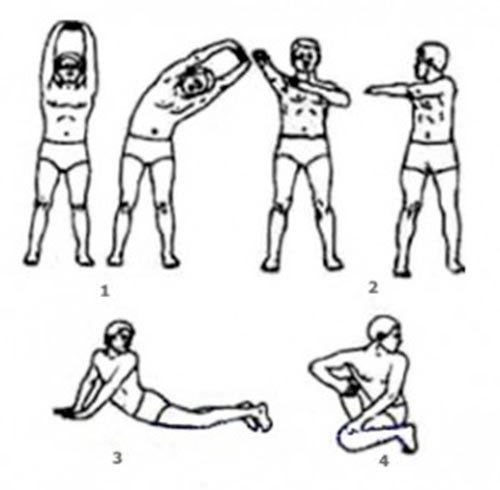
How to drink
Drink a glass of saline solution and perform the given complex. Drink a second glass of water and do the exercises again. Follow your feelings and act at a comfortable pace.
Normally, there is no nausea or desire to urinate. After 3-4 glasses of water, you may feel the urge to visit the toilet.
Continue drinking water and doing exercises until colorless fluid begins to come out of your intestines. This means that the process of treating constipation and cleansing the digestive tract is complete.
If you drink water and do exercises, but there is no desired result, listen to your own feelings:
- Nausea and a feeling of a full stomach indicate that the water is not moving. Perform the complex 2 or 3 more times and evaluate your condition.
- The absence of bowel movements while feeling well indicates that you can continue to drink and exercise. After 7 or 8 glasses of water, emptying will occur.
Water with salt for constipation, in combination with a set of special exercises, cleanses the entire digestive tract, and not just the lower intestines, unlike enemas and pharmaceutical microenemas. Repeat the procedure no more than once every six months to avoid dysbacteriosis.
Principles and rules of use
In order to normalize intestinal activity, you need to know how to drink water when constipated. To achieve maximum effect, you should drink at least 2 liters per day. liquids.
To enhance the laxative effect, the water should be cool or chilled. Sometimes it is recommended to alternately drink a glass of warm and a glass of cold water.
The liquid should be drunk 15 - 20 minutes before meals several times a day. This promotes the rapid entry of water into the intestines and the activation of favorable processes in the body.
Some experts believe that you only need to drink water once a day in the morning. This must be done after waking up, strictly on an empty stomach.
Laxative foods: flaxseed and olive oil, lemon, prunes, coffee and fiber
Constipation and bowel problems are topics that we try not to mention in everyday conversations. We can talk with a friend about a sore throat or another cold, but we usually trust more delicate problems to doctors.
This is normal, but you need to understand that constipation is not something shameful or funny, it is a very common problem among people of any age. Before you run to the pharmacy for pills, you can try taking natural laxative products, which are no worse than chemicals in treating the disease.
What is constipation?
Constipation is difficulty in defecation.
Constipation in medicine refers to a condition in which a person, for one reason or another, has difficulty or is unable to defecate.
The condition is usually caused by the formation of too hard stools or impaired intestinal motility. The large intestine can also absorb excess water from stool, forming hard masses.
Scientists have long found out that the slower food masses move through the digestive tract, the more water the intestinal walls will absorb. Hard feces can be passed with difficulty and pain even with intact intestinal motility.
Normally, no more than 36 hours pass between eating and defecation. This figure varies from person to person, but, as a rule, two days after the last meal, hard stool begins to form.
Causes and symptoms of constipation
Abdominal pain is a symptom of constipation.
Usually a person himself understands when he is constipated. This condition can rarely be confused with anything else. A person with such a problem notices that for several days he has not had any “big” trips to the toilet.
On these days, there might even be a urge to defecate, but it would not be possible to go to the toilet - there would be pain, it would be impossible to empty the intestines, making great efforts. Sometimes a small pea-shaped stool may be passed, but the person does not feel relief. Other symptoms of constipation:
We have figured out the main causes of constipation - the formation of hard stools (with low water content) against the background of weakened intestinal motility. The fact is that the intestines have a muscular layer that allows food masses to move towards the anus.
The intestinal walls literally squeeze the masses and push them away from themselves. If the stool is very hard, the intestines lose the ability to push it forward. Here are other causes of constipation:
- Taking antacids.
- Wrong diet.
- Oncology of the large intestine.
- Excess dairy products in the diet.
- Irritable bowel syndrome.
- Neurological disorders.
- Inactive lifestyle.
- Lack of water and fiber.
- Pregnancy.
- Pathology of nerves and muscles of the intestine.
- Side effects of antidepressants and anxiolytics.
- Stress.
- Pathology of the thyroid gland (hypothyroidism).
- Excessive use of laxatives.
It must be remembered that poor diet is the main cause of constipation.
Common ways to relieve constipation
A proper diet will help relieve constipation.
Initial measures to relieve constipation include changing your diet and using transrectal enemas.
Read: The kilogram diet: features, tips and recommendations
Treatment should primarily focus on diet and exercise rather than on laxatives, enemas and suppositories. Medication methods do not eliminate the cause of constipation, but only alleviate the symptoms.
The key to solving the problem may be increasing your fiber and fluid intake, as well as reducing your intake of astringent foods. Doctors recommend giving up alcohol during treatment, as it also contributes to constipation. Common medications:
- Preparations containing special dietary fiber.
- Stool softeners.
- Fast-acting oil-based lubricants.
- Prokinetic drugs that improve intestinal motility.
- Laxatives.
However, it is necessary to understand that taking medications is designed for severe constipation. If constipation has recently occurred due to dietary disorders, it is recommended to try to solve the problem for several days by using laxative foods. In this way, the patient will be able to avoid the side effects of the drugs.
Oil as a laxative
Olive oil is an excellent remedy for constipation.
Refined olive oil is not only healthy and tasty, but also an excellent remedy for constipation. The consistency of the product alone hints at laxative properties.
Olive oil stimulates the digestive system, lubricates hard stool and prevents further constipation.
This remedy can be taken regularly - not only to relieve constipation, but also for prevention. You will need:
- One tablespoon of olive oil.
- One teaspoon of lemon juice.
This remedy should be consumed in the morning in the amount of one teaspoon. The product can be washed down with a glass of water. Olive oil works best on an empty stomach, so you should postpone breakfast. If you forget to take the medicine before meals, you can take it during or after meals.
Lemon juice is not a necessary component, but it improves the taste of the product and makes bowel movements easier.
Lemon constipation remedy
The smell of fresh lemon is difficult to confuse with anything else: it is sharp and quite pleasant. The fact is that sometimes lemon is no less pleasant for the gastrointestinal tract than for our nose.
Citric acid acts as an active digestive stimulant and also helps get rid of toxins and retained undigested substances. Lemon juice not only stimulates secretion in the stomach, but also improves overall motility of the digestive tract. It is best to mix lemon juice with water - this will help get rid of the too sour taste. You will need:
- A slice of fresh lemon.
- A glass of distilled water.
You can leave a piece of lemon in a glass of water for a while or squeeze nectar from the pulp of the fruit. It is not recommended to add lemon to boiled water, as the beneficial properties of lemon juice are lost. Take a glass of water with lemon juice once a day in the morning.
Use of coffee
Coffee with milk helps relieve constipation.
Drinking strong black coffee in the morning is a common habit not only in the West, but throughout the world. This is an excellent invigorating drink with a pleasant smell.
Caffeine is a natural stimulant for the digestive system - it not only improves intestinal motility, but also softens hard masses stuck in the colon.
In fact, many of us have noticed the urge to go to the toilet after drinking a cup of drink.
You need to drink only as much coffee as necessary for the therapeutic effect. In case of normal constipation, one cup of drink with added milk is enough. Don't overdo it, as coffee is a natural diuretic. The body will excrete excess water, thereby preventing the stool from softening.
This video will tell you how to get rid of constipation:
https://www..com/watch?v=nlKL1XBYWKc
More plant fibers
When doctors talk about natural ways to relieve constipation, they mean a diet rich in fiber and other fibers.
A proper diet solves almost any bowel problem. In addition, our digestive system copes much better with fruits, vegetables and grains than with artificial foods and delicacies. It's all about the same fiber that travels through the intestines along with other foods, but is not digested.
Fiber is a polysaccharide, like starch. The structure of this substance cannot be digested in our body; it has other purposes. This fiber penetrates the thickness of the stool, helping to form healthy stools.
Only some bacteria in the large intestine are able to digest fiber, but they can only handle 15-20% of the substance. If there is not enough fiber in the diet, the stool can become hard and linger in the intestines. Fiber-rich foods:
- Beans and other legumes.
- Apricots.
- Whole grain bread.
- Berries.
- Broccoli.
- Nectarines, pears and apples.
- Nuts.
- Potato.
Read: Kefir starter at home - recipe and benefits of the product
But, as with caffeine, you shouldn't get too carried away with fiber. Pathogenic intestinal flora uses dietary fiber as a food product. Excessive fiber consumption often leads to dysbiosis.
Linseed oil
Flaxseed oil is a remedy for constipation.
We talked about olive oil above, but flaxseed oil can also help relieve constipation.
This oil has the best consistency - it literally envelops the intestinal walls and helps remove even the hardest stool.
To improve the taste of flaxseed oil, you can add lemon or orange juice. It is recommended to add orange juice along with the pulp, as it contains fiber. You will need:
- One glass of orange juice with pulp.
- One tablespoon of flaxseed oil.
You need to mix a tablespoon of oil with a glass of orange juice. You can drink this remedy once - relief usually occurs a few hours after taking it.
Aloe as a laxative
Aloe leaves are known to relieve inflammation and promote healing of minor wounds and burns. In fact, the leaves of this plant are also effective in cases of constipation.
It is best to use the plant in oil or gel form, but you can try making a remedy from the juice. Remember that aloe oil contains a high concentration of active substances. You will need:
- Two tablespoons of pure aloe oil or one glass of plant juice.
- You need to mix two tablespoons of oil with fruit juice and drink the finished product in the morning on an empty stomach. The products can be taken twice a day for a week.
Prune laxative
Prunes are an excellent remedy for constipation.
Prunes can be called the most famous and common remedy for constipation. The active substances of the prune fruit work as a natural laxative, stimulating intestinal motility.
In addition, prunes contain a lot of fiber and sorbitol. Sorbitol is a modified sugar that acts as a mild laxative.
This substance softens stool due to its carbohydrate-like chemical structure. In addition, sorbitol helps accumulate water in the colon. But it is necessary to remember that an excess of the substance makes the stool too liquid. You will need:
- Two glasses of prune juice or several fruits.
- You should drink one glass of juice in the morning and one before bed. Relief from constipation usually occurs the next day. The interval between taking the drug should be several hours, otherwise diarrhea may occur. Instead of juice, you can eat a few prunes and drink them with a glass of water.
We have found that natural laxative products can be used to treat constipation. This is an easier and safer method of getting rid of the disease.
Select it and press Ctrl+Enter to let us know.
Tell your friends! Share this article with your friends on your favorite social network using social buttons. Thank you!
Tweet
Telegram
Class
What's up
Source: https://PishheVarenie.com/dieticheskie-retsepty/slabyashhie-produkty/
Mineral water for problems with stool
Mineral water for constipation has a positive effect on the intestinal walls and accelerates the process of natural bowel movements. It is better to use non-carbonated or lightly carbonated drinks for this. However, not every water can be used for constipation.
There are several types of mineral waters:
- Therapeutic. Contains a large amount of salts and ions, more than 15 g/l. Such solutions are drunk only for the treatment of various diseases, under the supervision of the attending physician.
- Dining room. Has low mineralization, less than 1 g/l. It can be drunk throughout the day as a remedy or to quench thirst.
- The dining room is medicinal. The salt content ranges from 1 to 10 g/l. This mineral water is recommended to be taken as therapy and prevention of pathologies of the gastrointestinal tract.
Mineral water is indicated for spastic and atonic types of constipation. Before drinking water, you need to identify what type of constipation the patient has. In spastic conditions, the effect of mineral water is aimed at softening stool and reducing spasms. In such situations, slightly carbonated water with low mineralization is recommended.
With atonic constipation, the action of the liquid is aimed at strengthening and activating the intestinal muscles. In this case, doctors prescribe a carbonated, highly mineralized liquid.
The following types of mineral waters are used to treat constipation:
- Narzan.
- Borjomi.
- Essentuki.
- Slavic.
- Moscow.

It is also recommended to drink Donat water for constipation. It has a beneficial effect on all organs of the digestive tract, improves metabolism, reduces muscle spasms and normalizes stool consistency.
In order to find out what kind of water to drink for constipation, you need to consult a general practitioner or gastroenterologist. Doctors usually recommend using sulfate, bicarbonate, chloride, sodium or magnesium mineral water.
Mint or ginger tea
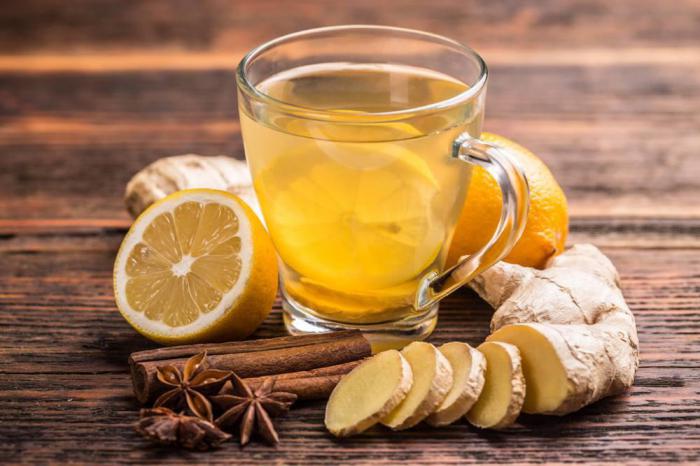
When toothpaste is harmful to children: permissible age doses
25 children of a childless man: an extraordinary reunion
Smooth armpits without shaving: ways to remove hair using conventional products
Mint and ginger are proven home remedies that can help ease the severity of digestive problems. Mint contains menthol, which has an antispasmodic effect - it relaxes the muscles of the digestive tract. Ginger is a “warming” herb that causes the body to produce more heat. Herbalists say it helps speed up slow digestion. In addition, hot tea also stimulates digestion and relieves constipation. Dandelion tea is another gentle laxative and cleanser.
Traditional water-based recipes for constipation
Traditional recipes are especially popular for constipation. Dill, honey, cucumber or lemon water, and decoctions of medicinal herbs are widely used.
Such agents reduce increased gas formation, have anti-inflammatory, antispasmodic, laxative and restorative effects. The advantage of such recipes is that they can be made at home.
These drinks have a pleasant taste and improve the natural bowel movements.
Some of these methods can be used to treat adults, adolescents and young children.
Dill water
Dill water is most often used for constipation and flatulence in infants. It does not cause side effects. You can buy it ready-made at a pharmacy or make it yourself. To prepare yourself you need:
- Take 1 tsp. dry dill seeds.
- Grind in a blender or mortar.
- Pour a glass of boiling water.
- Cover with a lid and leave for 2 hours.
- After cooling, strain through cheesecloth.
It is recommended that adults take dill water strictly on an empty stomach, a tablespoon 3 times a day. The duration of treatment is 2 – 3 weeks. In some cases, therapy can be continued for up to 1 to 2 months.
For children, the dose and duration of the course must be adjusted in accordance with the pediatrician’s recommendations.
You need to take only freshly prepared solution. After a day, the drink loses its medicinal properties.
Herbal decoctions
Some types of herbs differ in the time it takes for the desired effect to occur. Some of them act within a short time after application, while the effect of others appears only after a few hours. Therefore, it is necessary to study in advance the mechanism of action of various medicinal herbs.
The most effective include the following:
- Flax seed.
- Buckthorn bark.
- Liquorice root.
- Chamomile decoction.
- Blooming Sally.
- Senna infusion.
- Black elderberry flowers.

To prepare a medicinal decoction, you need to take 2 tablespoons of the herb, pour boiling water over it and put on low heat. The solution should be boiled for 30 minutes, stirring continuously. It is then cooled and filtered.
You need to drink the resulting decoction 1 tbsp. x 3 times a day before meals.
It is recommended to drink 1/4 cup of licorice root or senna infusion at night, before bed. In this case, a pronounced laxative effect will appear 6 to 8 hours later, in the morning after waking up. You need to take such decoctions for 14 – 20 days.
Only with regular use of these herbs will stool normalize and spastic symptoms disappear
Honey water
Honey water is very easy to prepare. To prepare this medicine, you need to dissolve a tablespoon of honey in a glass of warm water. It is recommended to take this liquid 2 times a day, morning and evening. It is advisable to drink this water 30 - 40 minutes before meals.
Honey drink has anti-inflammatory, antibacterial and healing effects. Therefore, water with honey can be consumed not only internally, but also used for therapeutic enemas or baths. In this case, you need to take not hot water, but cool, room temperature.
At the same time, small wounds and ulcers in the anus and intestines heal quickly. It is recommended to do such enemas only after consultation with your doctor.
cucumber water
To prepare cucumber water you need:
- Take 0.5 kilograms of fresh cucumbers, wash them and cut them into large slices.
- Wash a glass jar or other container with a screw-on lid thoroughly.
- Place vegetables in this jar.
- Pour 1 liter. cold filtered water, close the lid.
- Leave to infuse overnight (6 – 8 hours).
After this, the cucumber water is ready for use. There are no strict dosages for using this drink.
You can drink 1/2 glass of cucumber water 3 times a day or several sips throughout the day. This drink not only helps get rid of constipation, but also promotes weight loss and improves the water-alkaline balance in the body.
Lemon water
Water with lemon is also a good way to combat constipation. It also destroys pathogenic microbes and strengthens the immune system. Lemon water for constipation is indicated for use in adults and children.
To prepare such a drink, you can use two methods:
- Squeeze the juice of half a lemon into a glass of water.
- Finely chop the lemon, add water, leave for 2-3 hours and filter.
To normalize stool, you can use any of the above methods. Different cooking methods do not have any effect on the final effect.
A glass of freshly prepared lemon water should be drunk every morning, before meals. The course of treatment usually lasts 2-3 weeks. To improve the taste, you can add a little honey or sugar to the liquid.
Raisin decoction for children
To relieve a child of constipation, pediatricians recommend raisin water. It contains a lot of potassium, which activates intestinal motility.
Raisin decoction normalizes water balance, so it can be used not only for constipation in children, but also during fever and dehydration. Raisin water tastes good, so children drink it with pleasure.
Allergies to this drink are rare, but precautions should be taken. For the first time, give your child raisin water in the morning and in small quantities.
Monitor the condition of the skin (in infants, a rash appears on the cheeks) and changes in behavior. If no reaction occurs, you can continue taking the decoction.
There are no age restrictions for drinking raisin water. Both infants and older children can drink it. The only contraindication to this treatment for constipation is the presence of colic in the baby. Raisins can trigger the fermentation process in the intestines, which will aggravate the situation.

How to cook
Take a tablespoon of raisins per glass of boiling water. It is convenient to prepare the decoction in a thermos: if its volume is 1 liter, then 4-5 tablespoons of raisins will be enough. Pour water over the dried fruits, close the lid and let the drink brew for several hours or overnight.
How to drink
For constipated babies, supplement with this water in between feedings. For older children, raisin decoction can be offered instead of compote or water. This anti-constipation drink will return your child to restful sleep and good mood.
Possible restrictions
It must be remembered that there are some contraindications for drinking water for constipation. It should not be taken if:
- Exacerbation of chronic diseases of the gastrointestinal tract.
- Bleeding.
- Severe swelling.
- Chronic heart or kidney failure.
Lemon water is not recommended for use if you have a stomach or duodenal ulcer. Also, the use of lemon, honey and herbs should not be used by people with a history of allergic reactions.
Thus, drinking water is indicated for the treatment of all types of constipation. To normalize stool, it is enough to drink 1.5 - 2 liters per day. liquids. Water for constipation helps to quickly evacuate intestinal contents, improves bowel function and prevents dehydration.
Andrey Yurievich
